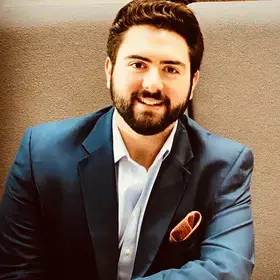Jonathan Chang (’11SPS, Negotiation and Conflict Resolution) is the Executive Director at the National University of Singapore Enterprise. His goal is to mentor change-leaders across the region and has pioneered the Singapore Management University as Asia’s first Ashoka Changemaker Campus. As a global speaker, Chang has delivered influential presentations to thousands of people. His TEDx talk at Harvard University, where he discussed the importance of a mission-driven life, was featured on Voice of America. Chang is also a graduate of UC Berkeley, Stanford Graduate School of Business, and Harvard Kennedy School.
What initially attracted you to the Negotiation and Conflict Resolution program at Columbia University?
The skills and knowledge of Negotiation and Conflict Resolution are useful and transferable across any industry and profession. In addition, the ability to take courses in the evenings and weekends was convenient for me as I was in the midst of launching a startup.
Which skills were you able to build and improve on through the program?
Negotiation, mediation, and conflict resolution. More than anything, it was the skills to assess how to handle unexpected situations in which conflict could have occurred if one didn’t implement good judgment and deescalate tactfully and calmly. In short, the program is not just about addressing conflicts but also preventing them from occurring in the first place. Prevention is always better than damage control.
How have these skills helped you succeed in your career?
The biggest and most important takeaway is that we need to understand the real interest of our negotiating counterpart – not merely focus on his/her position. I ask probing questions and actively listen to really go deeper than surface level posturing. This is important because it shows that I care about the relationship. This proves to be very useful in gaining allies instead of creating enemies because the other parties feel cheated and have developed buyer’s remorse. Just because one agrees with us, it doesn’t mean the other party is happy with the end results. Unless of course, we are able to come into a win-win situation. Negotiation is not and should not be a zero-sum game.
What was a defining moment for you while attending the program?
Under the leadership of Dr. Beth Fisher-Yoshida, the program nurtures and supports the development of students beyond just classroom interactions. I was able to secure funding through the Earth Institute to conduct field research in Kigali, Rwanda. My topic was how to utilize entrepreneurship as a tool for social impact. That was one of the most defining moments of my life – for the first time, I was able to connect social impact with my passion for entrepreneurship. My life trajectory has never been the same ever since. My commitment to social entrepreneurship and social innovation is the cornerstone of virtually everything I do.


